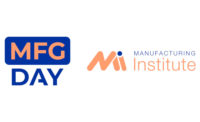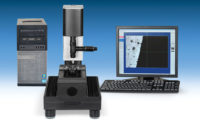The STEP-NC AP238 standard is the result of a 10-year international effort to replace the RS274D (ISO 6983) M and G code standard with a modern associative language that connects the computer-aided design (CAD) data used to determine the machining requirements for an operation with the computer-aided manufacturing (CAM) process data that solves those requirements.
STEP-NC builds on the previous 10-year effort to develop the STEP neutral data standard for CAD data, and uses the modern geometric constructs in that standard to define device-independent tool paths and CAM-independent volume removal features.
At the meeting the ISO team will demonstrate the advantages of STEP-NC for advanced machining applications. An impeller will be machined in a titanium alloy and measured in process using a Faro arm and offline using a coordinate measuring machine (CMM) machine. The demonstration will show that:
The Meeting
The first day of the meeting will be held at the United Technology Research Center (UTRC) on the Pratt and Whitney Campus in Hartford, CT. This day will feature the machining and measurement of the impeller part. The day will start with an introduction to the STEP-NC concept by machining experts. This will be followed by five-axis machining of the impeller in a titanium alloy, in-process measurement of the part using a Faro arm and corrective action to finalize the machining.
The day will conclude with a round panel discussion by experts from Boeing, CCAT, Sandvik, Mitutoyo, STEP and the National Institute of Standards and Technology (NIST).
The second day of the meeting will take place in the meeting facilities of the Connecticut Center for Advanced Technology (CCAT). The technical agenda will feature the latest enhancements proposed to make machining more efficient, accurate and flexible. These will include proposals for dynamic feed speed optimization that will be finalized at the meeting, and new proposals for computing and managing corrective tool paths that will be discussed for the first time at this meeting. There also will be discussions on new standards for machine tool simulation and cutting tool data exchange.
For more information, call (518) 687-2848, e-mail [email protected] or visit www.steptools.com.


